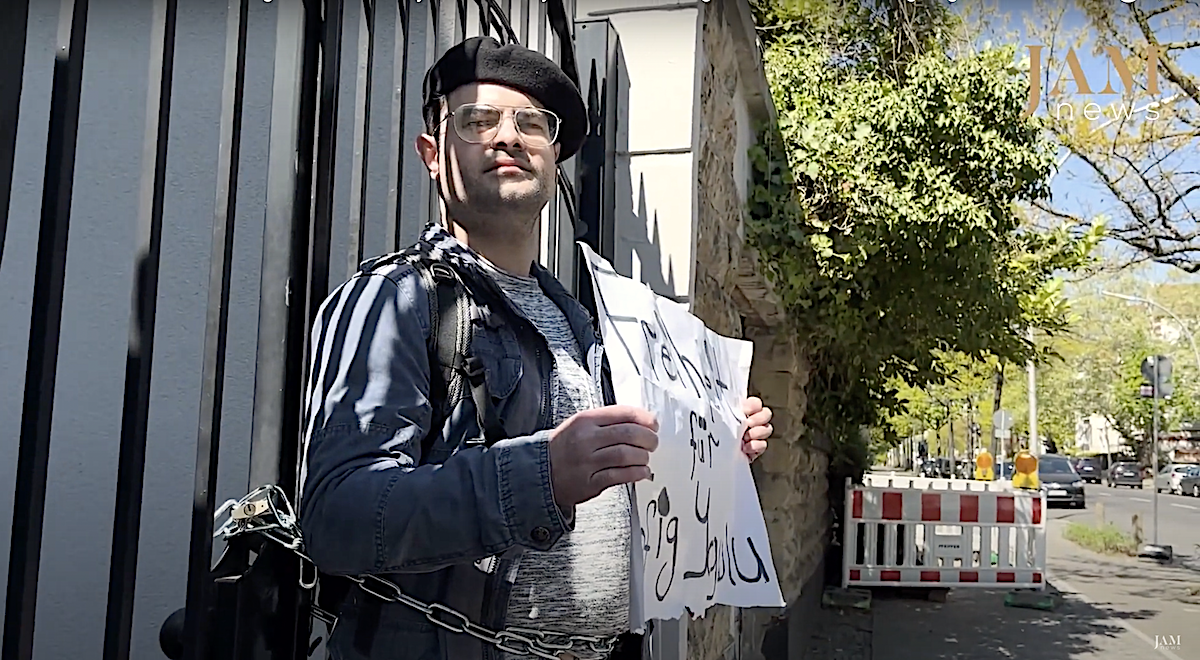Generation Z and organisation of labour: struggle shaped by values
Generation Z and organisation of labour
Generation Z, regardless of where they live, seeks fairer, more humane, and more meaningful working conditions. They want to work not only for income, but in environments aligned with their values.
Although in Azerbaijan this generation still lacks broad opportunities to organise labour, their individual acts of resistance on social media are laying the groundwork for alternative forms of activism.
In recent years, the labour market has seen major shifts: the rise of remote work and growing demands for employee well-being have become key trends. One of the driving forces behind these changes is Generation Z, shaped by technology and ideals of social justice.
Drawing on both the legacy of classical labour movements and the values of a new era—such as transparency, inclusivity, and ethical consumption—this generation is forging new paths in the struggle for labour rights.
In this article for JAMnews, Nilufar Mammadrzayeva, a board member of the Azerbaijani confederation of trade unions İşçi Masası, discusses Generation Z’s experience of organising workplaces in various countries and the motivations behind these efforts.
The İşçi Masası Confederation of Trade Unions is an alternative union movement operating in Azerbaijan. Its main goals are to protect workers’ labour, social and economic rights, improve working conditions, and fight labour exploitation.
Labour relations shaped by values

One of the defining characteristics of Generation Z is their view of work not just as a source of income, but as an activity that aligns with their personal values. According to a 2024 Deloitte survey conducted in 44 countries, 86% of respondents said they work for a sense of well-being and believe it’s important that their job has meaning and serves a purpose.
Members of this generation are more likely to reject tasks that contradict their ethical principles — and even to quit their jobs. Half of the survey participants said they had refused certain assignments for this reason, and some reported having left their job entirely.
Issues such as environmental harm, non-inclusive behaviour, the promotion of inequality in the workplace, and disregard for employee well-being are key factors driving Generation Z to organise around labour. They strive to be not only responsible workers but also conscious consumers: avoiding fast fashion, limiting air travel, choosing vegan or vegetarian diets, and preferring electric vehicles.
Struggle of Starbucks baristas
The labour organising efforts of Starbucks employees in the US serve as a vivid example of this trend. Baristas are responsible not only for serving customers but also for managing crisis situations within the stores. Even job postings emphasise the need for conflict-resolution skills. Nevertheless, workers say they receive insufficient support from management under such challenging conditions.
Employees from two Starbucks branches in Eugene, Oregon, sent a letter stating that their stores are classified as “high-incident locations” and that problems concerning physical safety remain unresolved. According to them, baristas are sometimes subjected to sexual harassment and psychological pressure. In some cases, customers require urgent medical or mental health assistance.
Baristas from these locations refer to themselves as “undertrained social workers.”
“Starbucks Workers Union”
In addition to these challenges, Starbucks tends to rely on a younger workforce, many of whom access healthcare through their parents. This reduces the likelihood that they will demand similar benefits from the company.
Many of these employees work part-time, which excludes them from additional workplace benefits. These factors have led hundreds of Starbucks employees to form a union. To date, unionisation efforts have been successful in 18 stores.
The Starbucks Workers Union’s campaign against one of the world’s largest chains — with over 9,000 branches in the US alone — demonstrates that unionisation is possible even in the service sector, where organising labour is particularly difficult.
Amazon’s example
In December 2024, Amazon workers launched protests demanding a collective bargaining agreement. Although only around 600 people took part in the demonstrations, the union they represented covered tens of thousands of employees.
The protests were sparked by Amazon management’s refusal to recognise the union and begin negotiations.
Most of the demonstrators were warehouse workers — the backbone of the company’s operations.
South Korea: end of company loyalty
In South Korea, Generation Z is turning away from the traditional model of lifelong loyalty to a single company. Faced with broken promises made to their parents’ generation, young people are taking a more demanding stance — despite being well-educated and working long hours, most cannot secure stable incomes or social protections.
Today’s youth are unable to attain the same security their parents once had. South Korea remains one of the countries with the longest average working weeks — a factor long credited for its rapid economic development. In the past, workers would stay with one employer until retirement, trading long hours and deep loyalty for job stability and steady income.
But this model is now being challenged. In 2023, a government plan to extend the working week to 69 hours was scrapped after youth-led protests.
According to research by Jeong Hyun-joo of the Korea University of Science and Technology, Gen Z is more inclined than previous generations to form unions and sees labour activism as a viable path toward better working conditions.
France case
In 2023, the French government’s plan to raise the retirement age sparked mass protests — with youth at the forefront.
University and school classes were boycotted, and student groups coordinated efforts closely with trade unions.
The protests soon turned more violent. A group of young people broke away from the crowd, vandalised bus stops, and set a car on fire. Despite the law being enacted, demonstrations quickly spread, with thousands of young students and activists taking to the streets.
Azerbaijan: From collective organising to individual resistance
In Azerbaijan, the political environment makes collective labour organisation more difficult. When examining how Generation Z organises around work in the country, several distinct features emerge. Unlike their counterparts elsewhere, young people in Azerbaijan show little overt labour activism. One reason is the absence of a trade union tradition. Official unions tend to be symbolic, while independent organisations are lacking—prompting youth to avoid traditional forms of collective action.
The state also fails to offer clear, concrete strategies for creating opportunities for young people.
Although youth employment and education are cited as key development goals in the UN-Azerbaijan Partnership Framework, these are not backed by convincing state-level measures.
Frequent repression of protests and grassroots initiatives denies young people fundamental freedoms, hampering their ability to challenge injustice in the workplace or at university.
In response, anonymous social media posts have become widespread, naming employers, sharing personal experiences of working conditions, and aiming to spark public backlash.
Many young people now turn to freelance jobs, one-off contracts, or remote work for foreign companies. This shift reflects both discontent with the system and a redefinition of labour values. While Generation Z in Azerbaijan still lacks broad organisational channels, their acts of resistance online are laying the groundwork for alternative forms of labour activism.























